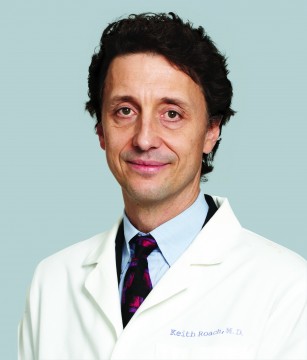Medical Columnist Sticks Up for Celiacs
Dear Dr. Roach: “I have no health issues, but I’m a cheapskate. I see products labelled as “grain-free” or as “gluten-free,” but they always cost more than the regular product. Are there any health benefits to using these, or are they marketing gimmicks?” L.C.
- Dr. Keith Roach 1
They are not marketing gimmicks at all. People with celiac disease have a sensitivity to a protein in gluten, called gliadin. Even small amounts of gluten can cause long-lasting damage to the intestines, and many people with celiac disease will be unable to properly absorb nutrients if they are regularly exposed to gluten. This can manifest with severe symptoms, such as weight loss, diarrhea and severe metabolic disturbance. Or it can trigger much milder ones, such as mild abdominal discomfort after eating, skin changes, anemia or joint pains.
Because the symptoms of celiac disease are so varied, a physician must be fairly convinced it’s celiac before making the diagnosis. Biopsy is the gold standard for certainty, but blood testing — if done while consuming a diet containing gluten — is suggestive. I strongly recommend getting a diagnosis before going on a strict gluten-free diet if you suspect celiac disease.
For people with diagnosed celiac disease, strict adherence to a gluten-free diet is essential, and the increasing availability of gluten-free foods has made the lives of people with celiac disease better. Many grains are gluten-free, naturally.
There are people with symptoms from gluten-containing foods but who do not have celiac disease. The term is “non-celiac gluten sensitivity.”
Some people with this condition are sensitive to components of the food other than the gluten, although there are some people who are sensitive to gluten, but do not have celiac disease.
For people without NCGS and without celiac disease, avoiding gluten is not necessary. A diet with many different whole grains has been proven to reduce heart disease risk compared with a more meat-based diet.
Dr. Keith Roach graduated from the University of California, Berkeley, with a degree in molecular biology. He earned his M.D. at the University of Chicago, and did his internship and medicine residency training there. In 2000, Dr. Roach moved to New York, joining the faculty at Weill Cornell Medical College and New York Presbyterian Hospital as an Associate Attending Physician and Associate Professor of Clinical Medicine. He has won every major teaching award offered by that institution. He also served as program director for the primary care internal medicine training program.
SEE ALSO: Dr. Roach: Get Celiac Diagnosis Before Cutting Out Gluten














